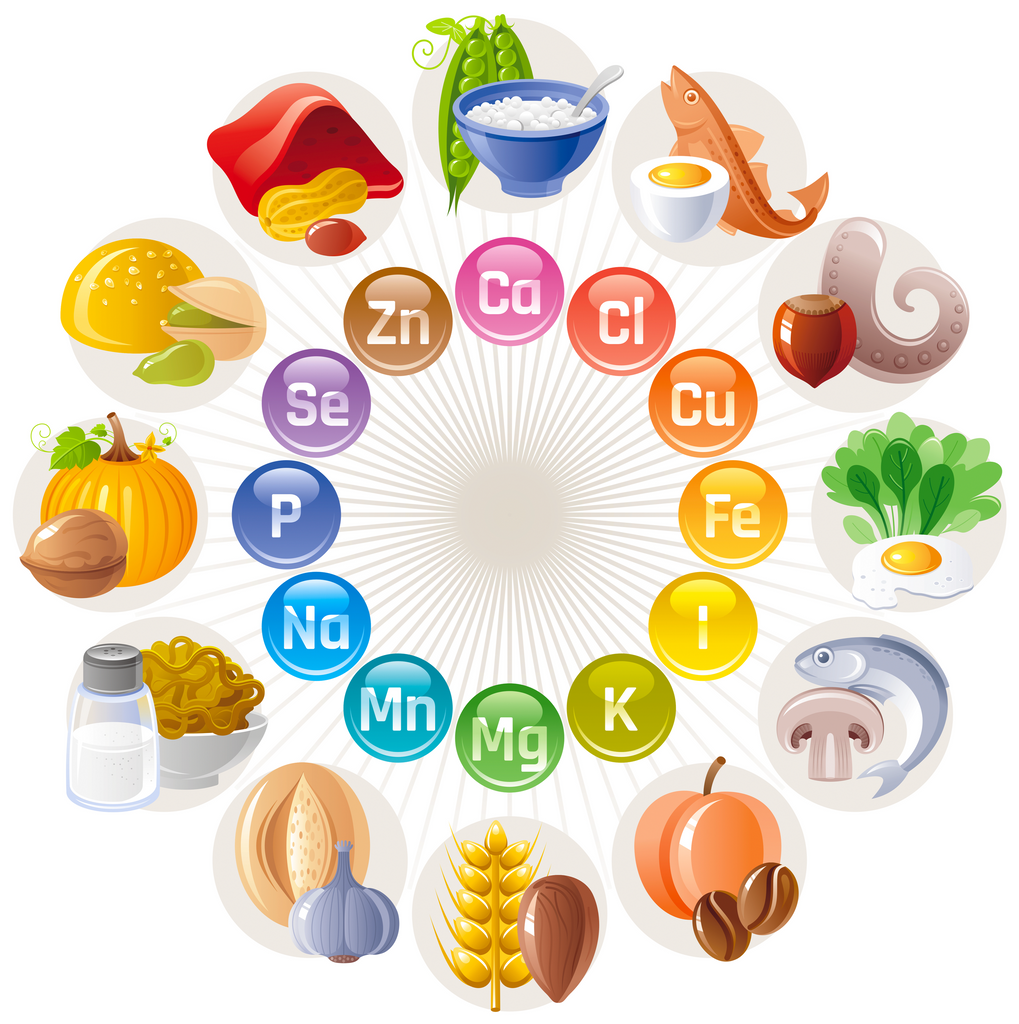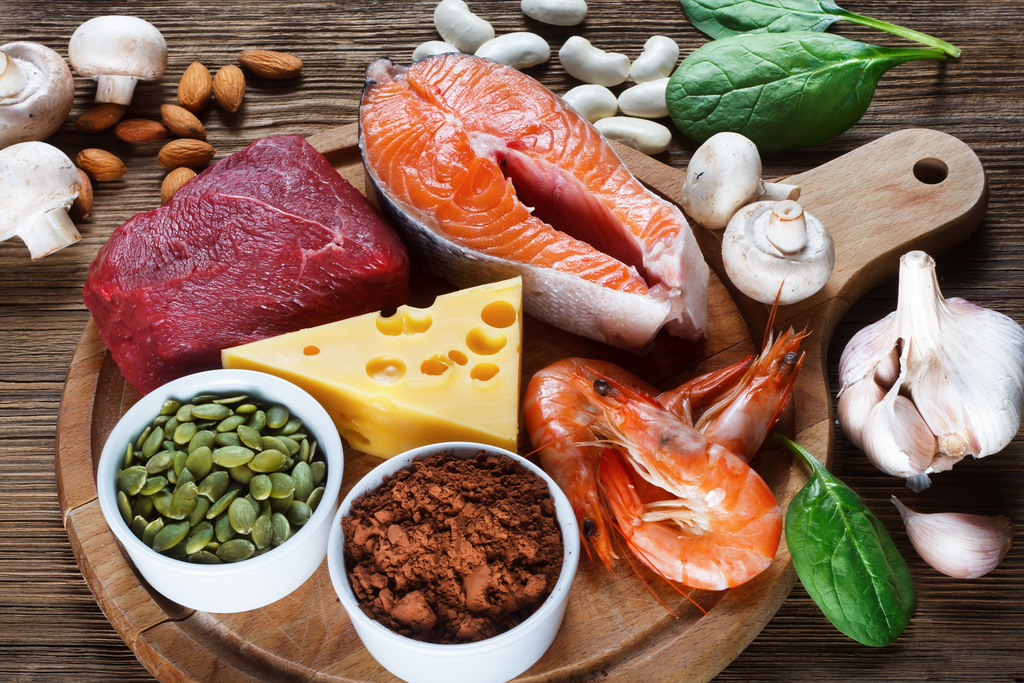
The Symptoms and Hidden Causes of a Severe Zinc Deficiency
, by Guest Writer, 16 min reading time

, by Guest Writer, 16 min reading time
Written by James H. Lyons, BHSc Nutritional Medicine
James Lyons is a registered clinical nutritionist with special interest in preventative medicine, endocrine conditions and LGBTQI health. He is passionate about health education and patient autonomy, and he supports resources that empower everyone to make informed decisions about their health. James lives in the eastern beaches area of Sydney, Australia and works globally.
Feeling run down and moody? In this article we go through the specific signs of a zinc deficiency. You will learn why zinc is essential for the structure and function of the body, why deficiencies develop, where to find it in your diet and how to safely use zinc supplements. Zinc from A – Z.
Zinc deficiency has been linked to many health problems. If you suffer from slow weight gain, a sluggish immune system, frequent stomach pains and gas, or recurring mood problems, zinc deficiency could be the secret culprit. It may even slow down your body’s ability to recover from colds and the flu. In this guide, we’re going to take a closer look at how your body can become deficient in zinc and what you can do about it.
In the grand scheme of human nutrition studies, zinc research is in its infancy. Only discovered as an essential element for human health in the 1960s, a recommended daily intake was first established in the mid-1970s. In the short time since the 70s, we've discovered that zinc is involved in, well, pretty much everything.
Zinc is a trace element, meaning that we require very small amounts, but it is one of the most abundant elements found inside cells. The human body contains approximately 2g of zinc, distributed between all body fluids and tissues. Around 30% of a body's total zinc is found in the bones, 60% in skeletal muscle and the remaining 10% in other tissues and organs. The millions of roles that zinc plays can be categorised into three main areas:
Type II nutrients are cellular building blocks – the minerals, amino acids and proteins that create the structure of cells and are required for the synthesis of any new tissue. You guessed it – zinc is a major type II nutrient along with magnesium, sulphur, phosphorus, potassium, magnesium, amino acids and proteins. Because of their essential role in life, these nutrients are under tight physiological control.
As part of superoxide dismutase, zinc acts as one of the most powerful antioxidants in the body to reduce inflammation, prevent cellular damage, and detoxify waste.
Zinc is used in thousands of enzymatic reactions through the body. From energy production to DNA replication, hormone secretion and immune cell defences – zinc is essential for all types of biological reactions.
While severe zinc deficiency is rare in industrialised nations, the World Health Organization estimates that nearly half the world's popular suffers from zinc deficiency. Inadequate intakes and marginal deficiencies are common, too – in a 2000 survey of over 29,000 people in the USA, only 55% had adequate zinc intakes. Young children, teenage girls and older people over 70 years had the lowest “adequate” zinc intake.
Factors contributing to a risk of zinc deficiency or insufficiency include:
Copper and iron work with zinc as essential building blocks for basic biological processes. Copper is used in collagen and tissue development, heart health, brain development and nerve signalling.

Iron is used for cellular growth alongside zinc and transportation of oxygen. Despite synergistically working together on a physiological level, copper and iron can significantly impair zinc's status:
The take away: any disruption to iron or copper can throw zinc levels out of balance.
Zinc deficiency is notoriously hard to diagnose. As a type II nutrient, the body will do everything it can to keep zinc levels high, often to the detriment of other physiological processes. This can create a symptom picture that is subtle, ambiguous and broad-reaching – in fact, it can impair many major metabolic functions at once:
As a type II nutrient, zinc is essential for growth and development in all life stages. Children with a zinc deficiency are slow to grow or may not reach their full height potential – remember zinc is involved in both muscle and skeletal development.
This extends to adulthood where a zinc deficiency can impair the growth of tissue – ever had a hard time putting on weight or developing muscle?
Here's how zinc works in tissue growth:
A zinc finger is a protein with zinc ions in arrangements to create a “fold” in a polypeptide chain by creating a bridge between cysteine and histidine residues. They are essential for the proper structure of DNA proteins. Proteins containing zinc fingers are necessary for binding DNA sequences, RNA packaging, DNA recognition, regulation of apoptosis, protein folding, and lipid binding – the essential building blocks of cellular growth, division, and function.
Over 500 enzymes require zinc for growth, cellular metabolism and protein transcription – the basic fundamental processes that keep cells alive, dividing, and thriving.
The pituitary gland contains more zinc than any other organ, and for a good reason – zinc enhances the function of pituitary hormones including growth hormone (GH). Without zinc, the pituitary gland is unable to secrete GH, circulating levels subsequently drop. Bones are a primary target for GH, particularly during childhood and adolescence. Replenishing zinc can lead to an increase in growth hormone and insulin-like growth factor, as well as their binding proteins and a boost to their activity.
Zinc is essential for the synthesis and release of major anabolic androgen, testosterone. Testosterone promotes growth of muscles, organs, tissues and bones – without zinc, testosterone levels fall and growth stops.
Zinc is required for the metabolism and integration of many amino acids in the liver and directly within the muscles. In particular, zinc has an affinity for leucine – the amino acid with the biggest impact on muscle gains.
Without adequate zinc intake, muscles and bones can fail to develop properly.
Symptoms of a zinc deficiency in growth and development include:

Zinc's involvement in cell development and function is prominent in the immune system. This powerhouse mineral is essential to produce tumour necrosis factor alpha (TNF-a), Interleukin-2 (IL-2), and T-cells. TNF-a and IL-2 form the “alarm system”. They react quickly to infections in the body and call in the heavy hitting T-Cells to the area to react specifically to the pathogens present.
Zinc deficiency hits T-cells hard – it depletes their numbers and compromises their function, resulting in a confused, sluggish and weakened immune system. Here are three signs that your body is struggling against a zinc deficiency:
CAUTION: Copper is essential for immune function, too. Taking high dose zinc (20x the RDI) has been shown to cause immune dysfunction due to an induced copper deficiency.
A peculiar symptom of zinc deficiency is an impaired sense of taste. Zinc is required for the structure and action of the taste-buds, the nerve impulses that send the signal of “taste” to the brain, and for the brain to receive the message and translate it into, “Mmm, tastes good – eat more!” Without adequate levels of zinc, the message stops at the mouth and most food tastes... well, bland. A give-away of a zinc deficiency is an ongoing craving for salt.
This can lead to a loss of appetite, less eating and lower intake of zinc – supplementation can break this cycle and boost the sense of taste and smell and improve appetite.
“Leaky gut” is the common term for a condition called intestinal hyper-permeability. This is where the cells that form the lining of the gastrointestinal tract become separated, allowing large particles in the small intestines to flow where they shouldn't – straight into the blood.
Normally, the cells of the intestines are held together by what are called “tight gap junctions”. These are flexible structures that open and close to allow small particles to be absorbed. When everything is moving smoothly, only well-digested, tiny nutrients can pass through.
Tight gap junctions are highly reliant on zinc – without zinc, they become permeable and “leaky”. In fact, every cell in the digestive tract requires a lot of zinc for its structure and function. Signs of a zinc deficiency include multiple digestive complaints:
Zinc is found in huge amounts in the brain, specifically the hippocampus, cortex and amygdala. It is fundamental for the transmission and regulation of key neurotransmitters GABA, glutamine, serotonin and dopamine – the four major chemicals involved in learning, mood, and relaxation. Low levels of zinc can contribute to:
In men, the amount of zinc contained in the body has been shown to have a direct correlation to the amount of testosterone. When zinc levels are low, researchers have discovered that testosterone activity decreases significantly. Zinc deficiencies lead to both a reduction in the receptors that testosterone binds to (androgen receptors), as well as the production of testosterone itself. Men begin to produce less testosterone, while at the same time becoming less sensitive to the testosterone currently in circulation. Zinc supplementation has been shown to boost testosterone, resulting in a huge increase in libido and even a correction of erectile dysfunction.
In women, the relationship between zinc and hormone levels are slightly different. Zinc has been shown to inhibit overactivity of an enzyme known as 5-alpha-reductase, which is responsible for converting testosterone to the more active Dihydrotestosterone (DHT). This helps balance the ratio of estrogen to testosterone in the female body, and eases symptoms related to hormonal imbalance such as hirsutism, PCOS, and PMS.
A study in 2014 compared the serum zinc levels of 100 participants with acne vulgaris to 100 participants with clear skin. The researchers found that those with acne had much lower zinc levels and found an association between zinc levels and the severity of the acne present.
Oral zinc supplementation has been shown to destroy the bacteria that causes acne, and to reduce the excessive production of sebum in the skin (a type of “oil” that blocks pores and keeps bacteria trapped there).
Oysters contain the richest zinc concentrations on the plate – a traditional aphrodisiac... Did we mention that zinc supports libido? Six raw oysters contain ~35mg of zinc – a therapeutic dose!

Other less fishy sources include organ meats, red meat and turkey.
Plant-based sources rich in zinc include wheat germ, sesame seeds, pumpkin seeds (pepitas), nuts, mushrooms and dark chocolate!
Remember: If you get most of your zinc from plant-based sources, you will need a higher zinc intake to account for the phytate content that inhibits zinc's absorption in the intestines. Yes, we're suggesting you should eat more dark chocolate.
Zinc supplements are common and come in many forms, each with varying amounts of elemental zinc (pure zinc). For example, zinc citrate delivers roughly 34% elemental zinc by weight compared to just 13% in zinc gluconate. The differences in this ratio means that 100 mg of zinc citrate is very different than 100 mg of zinc gluconate. For this reason, it’s important to always follow the label when taking zinc supplements.
CAUTION: Take zinc supplements with food. Common side effects of taking zinc on an empty stomach include nausea and vomiting.
TIP: Speak to a qualified nutritionist, naturopath or doctor for personalised advice, especially if you are taking medications.